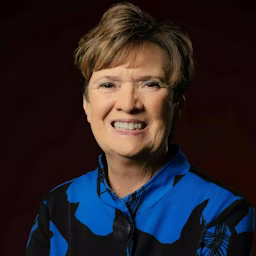A version of this post was presented at the CHC’s “Humanities Communication Convening” held at the American Academy of Arts & Sciences on Sept. 6, 2024.
I am convinced that to be effective, the work of enhancing humanities communication needs to be considered against the backdrop of this moment of enormity for American higher education—one in which there has been a dramatic decline in public trust in the academy, burgeoning skepticism around the value of a college degree, and mental health issues have surpassed financial considerations as the primary reason students are either dropping out of college or not attending in the first place. It is a time when escalating culture wars and the subsequent politicization of higher education have led to unprecedented governmental overreach, eroding institutional autonomy and upending established precedent that once empowered colleges and universities to determine for themselves “who may teach, what may be taught, how it shall be taught and who may be admitted to study.” Moreover, the current proliferation of educational gag orders and legislative efforts to base college and university funding on immediate employability, has resulted in an accelerated push toward STEM and pre-professional programs at the expense of the humanities, which are positioned as a mere luxury and willful disconnect from the practical matters of everyday life.
In this post-truth era, in which controlling the narrative often takes precedence over facts, we need to ask not only about what lessons might be learned from science communicators but also how their challenges and the rising anti-science movement can inform us. The reality is that the scientific community has been discussing the dangers of climate change since 1957, and yet there are still climate change deniers. Further, we know that no amount of scientific evidence around the efficacy of masks and vaccines in response to the COVID-19 pandemic mattered when scientifically supported, policy-relevant facts conflicted with certain audiences’ political perspectives and other cultural influences. Misinformation is often simpler, more emotionally appealing, and easier to spread, with the echo chambers we have come to inhabit limiting our exposure to information in ways that reinforce our existing beliefs, curtail moral imagination, and lead to a sense of isolation.
Countering the devaluing of the humanities, then, will require employing multiple messages that target different audiences. Prospective students and their parents, together with legislators controlling the purse strings, certainly need to know about research like AAC&U’s employer surveys, consistently showing that hiring managers value the skills, competencies, and dispositions foundational to an education in the humanities (AAC&U, How College Contributes to Workforce Success: Employer Views on What Matters Most). Yet, we shouldn’t appeal to data at the expense of emotional and social factors underlying how people form beliefs.
In previous convenings, we have talked about massive campaigns like the dairy industry’s “Got Milk?” ad, which infiltrated the American psyche, and I can certainly envision following the same formula by featuring celebrities who tell their own stories about humanities practice in ways that would appeal to a wide demographic. Imagine Taylor Swift talking about the historical research she did for her satirical song “The Last Great American Dynasty,” which chronicles the life of Rebekah Harkness, a socialite who owned Standard Oil and lived in the Holiday House Swift now owns. Or Adam Driver, who spent two years in the Marines, talking about how he prepared for his starring role in the movie Paterson, about a veteran grappling with the return to everyday life, by writing “bad” poetry and reading ancient Greek tragedies as part of the Theater of War project aimed at helping soldiers with PTSD. Or Andrew Garfield, who played Spider Man and Jonathan Larson in “Tick, Tick…Boom,” opening up about what he refers to as the “precise agony of losing his mother to pancreatic cancer” and how music, art, and theater helped his family find meaning and purpose amid loss and grief. In each case, their stories could end with the tag line “That’s the humanities.”
Of course, today this kind of end-game modeling to reach different audiences must include memes and Instagram—which have become today’s love language between parents and children—and YouTube, whose biggest sensation Mr. Beast (Jimmy Donaldson) is now having his videos translated into 30 languages due to demand. There are already inspiring, public-facing communicators in the humanities, and we should be leveraging productions like Skip Gates’ “Black History in Two Minutes (or so)” alongside those of the Swedish power metal band Sabaton, who decided to focus their lyrics on historical themes and who have created a YouTube Channel called Sabaton History that documents the events behind their songs. Recipients of the Swedish Skeptics Association’s Public Educator Award, the band released a music pack for the Paradox video game Hearts of Iron IV, that immerses players in World War II, where they can lead a nation, build industrial powerhouses, and form diplomatic alliances.
These resources are most effective when meaningful partnerships are formed with K-12, public libraires, museums, and community members. But this will require a renewed and reinvigorated commitment by colleges and universities to serving as anchor institutions, in which their institutional success is seen as inextricably linked to the psychological, social, economic, health, and educational of the communities in which they are located and those they seek to serve. Hunter College president Nancy Cantor reminds us that to become trusted partners in the change we are seeking, we must take an outside-in perspective on the academy, asking “What does the public need from us?” and “What are we good for?” rather than “What are we good at?” Catalyzing this cultural shift on our campuses is what I see as the single most important undertaking for our purposes.
This change must begin with the way we communicate with our students. Mays Imad, a neurobiologist at Connecticut College who researches trauma-informed pedagogy calls for a paradigm shift to a holistic approach guided by student-centered, culturally responsive liberal education. Her scholarship shows that a narrow focus on workforce development and job placement is misaligned with what students want out of college, which is an education that allows them to uncover deeper truths about themselves, their fellow human beings, and their world. She routinely asks her STEM students to reflect on how the topic of the day affects their own lives, those of their peers, and the community. She brings in related poems, songs, or works of art to inspire reflections on what students find beautiful about the topic and why, as a way of discovering “meaning in patterns, order in chaos, direction in ambiguity, and enduring beauty in the face of uncertainty.” She persists in these pedagogical attempts despite an understanding that many of her STEM colleagues view these efforts as either a distraction or an undermining of excellence.
Indeed, to effectively address the audiences within higher education, we need to work with disciplinary societies and campus leaders at all levels to reconsider and articulate what we value, especially in the tenure and promotion process, and collectively affirm the humanities as central to higher education’s public purpose and to our nation’s historic mission of educating for democracy.

Lynn Pasquerella was appointed president of the American Association of Colleges and Universities in 2016, after serving as the eighteenth president of Mount Holyoke College. She has held positions as Provost at the University of Hartford and Vice Provost for Academic Affairs and Dean of the Graduate School at the University of Rhode Island, where she taught for more than two decades. A philosopher whose work has combined teaching and scholarship with local and global engagement, Pasquerella has written extensively on medical ethics, metaphysics, public policy, and the philosophy of law. Her most recent book, What We Value: Public Health, Social Justice, and Educating for Democracy, examines the role of higher education in addressing some of the most pressing contemporary issues at the intersection of ethics, law, and public policy. Pasquerella is a past president of the Phi Beta Kappa Society (2018-2021) and the host of Northeast Public Radio’s The Academic Minute.


Leave a Reply